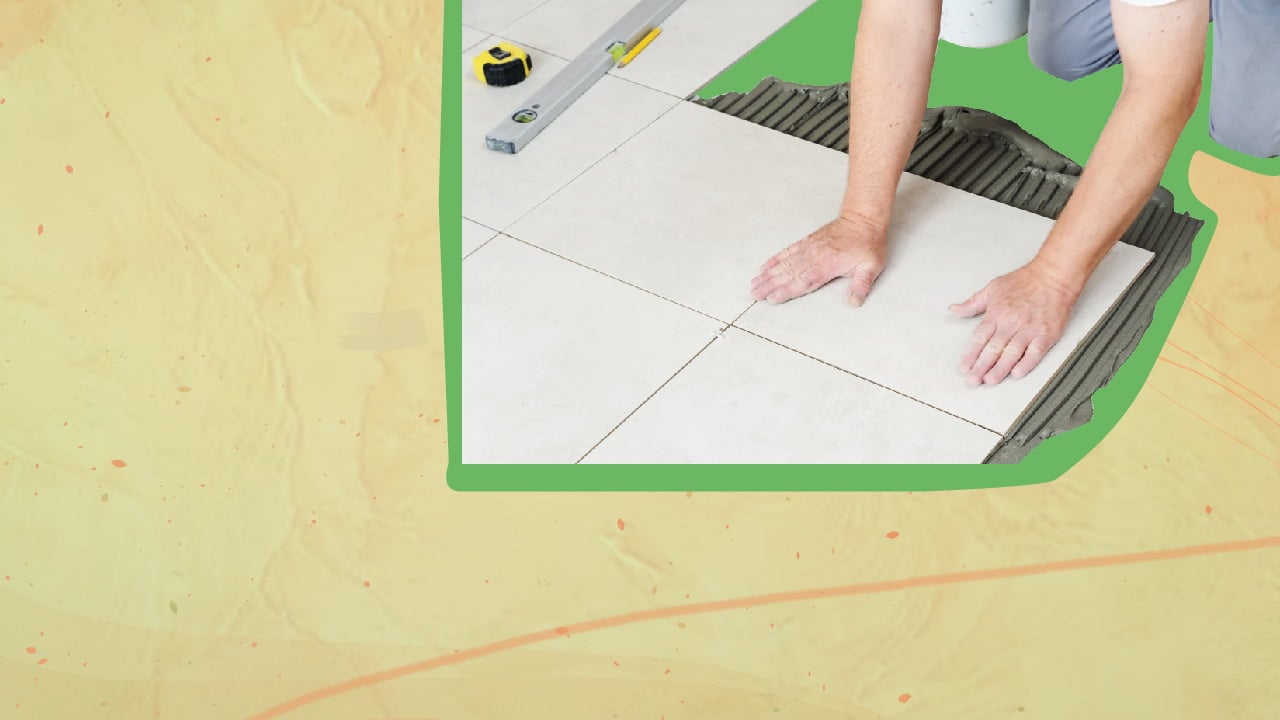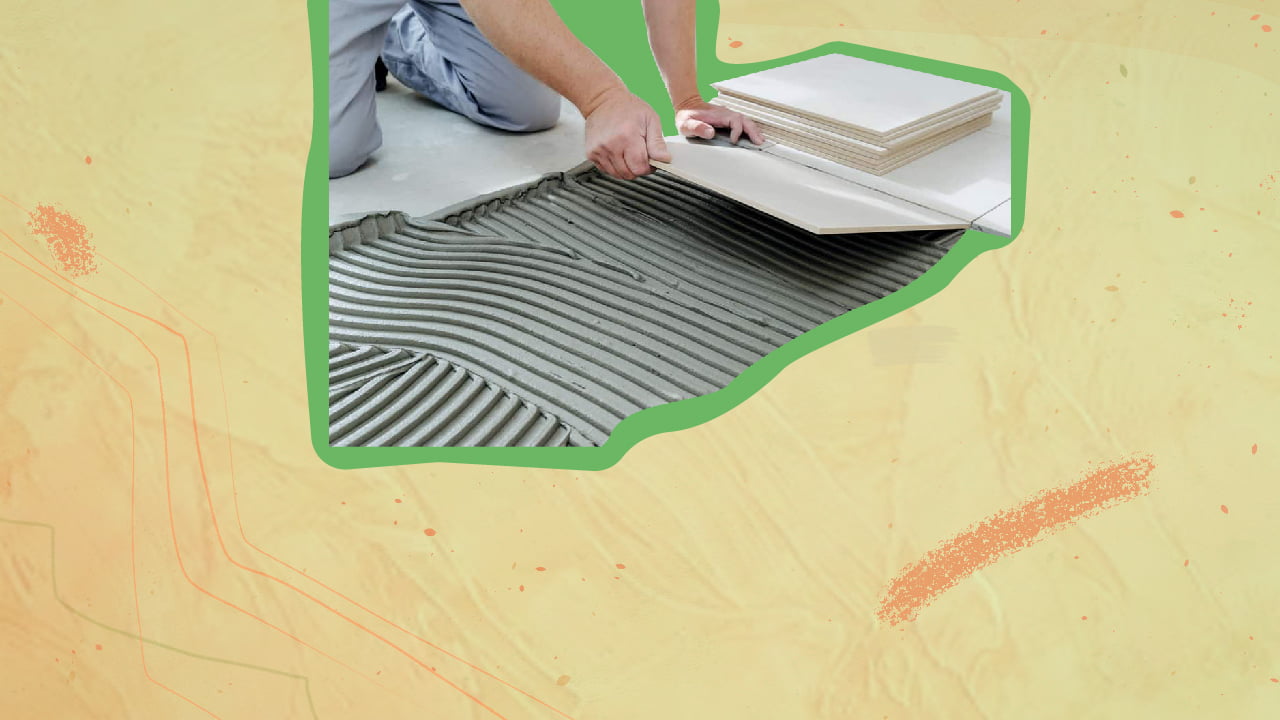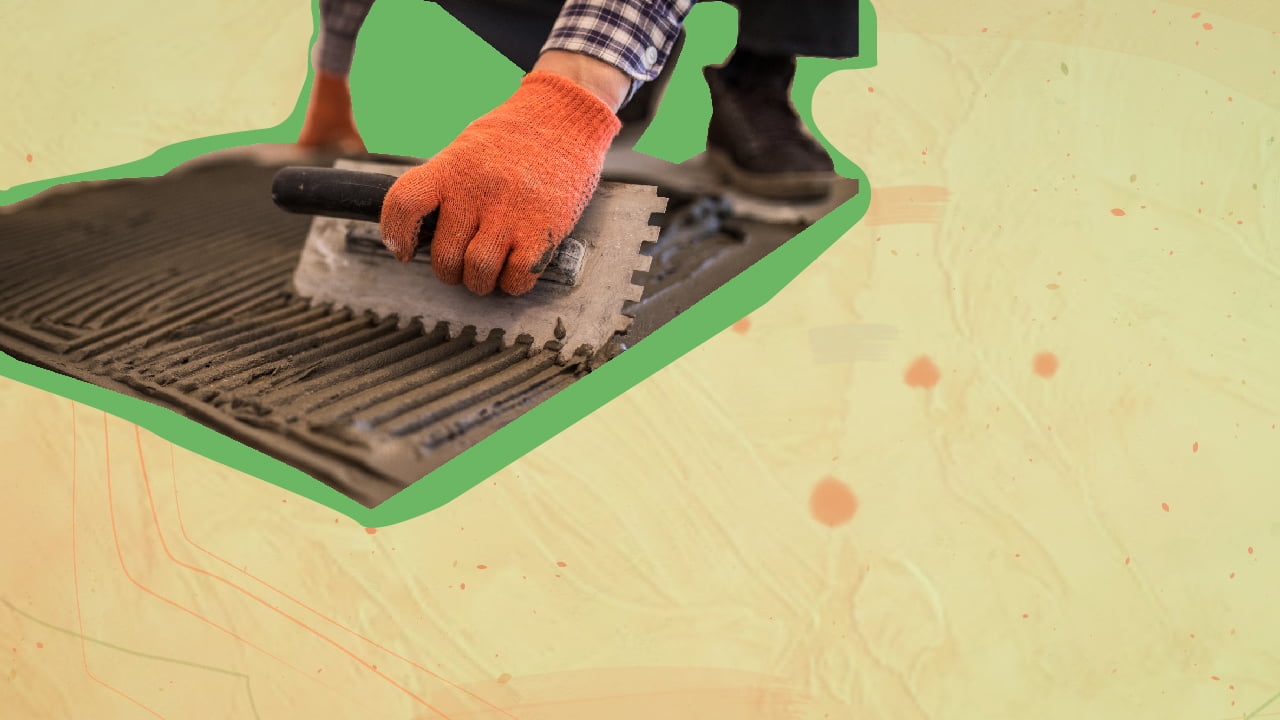 Reviewed by
Anton Giuroiu
&
Reviewed by
Anton Giuroiu
&
There is more than one method you can use to soundproof your tile floor. You can install acoustic underlayments, vinyl mats, or acoustic floor tiles. If you want a simpler option, you can lay mats and carpets over the tile flooring to reduce airborne and impact noises.

Installing tile floors has become a popular choice among many modern homeowners, thanks to their visual appeal.
However, regular tile flooring is not suitable for reducing noise. So, if you do not want the downstairs neighbors to complain about your spontaneous dancing sessions, you should get the tile flooring soundproofed right away.
But the question is - how can you accomplish this task? That is what I have discussed here, so let’s get going!
Why Should You Soundproof Your Tile Floor?

There are two main types of floor noises - impact noise and airborne noise. The former is caused due to impacts on the floor, while the latter is caused by ambient noises.
For instance, if you drop an object on the floor, it will generate impact noise. On the other hand, the noise generated while listening to loud music or watching TV is airborne noise. The latter is more of a problem since the impact vibration can travel through the floor quicker than ambient noise. Because of that, soundproofing your floor becomes important, no matter the material.
However, a tile floor is not very good at reducing or eliminating either type of noise. In other words, the tiles transmit all types of noises through the floor, and these noises eventually reach the ceiling of the room that lies directly below.
This shouldn’t be a cause for concern if you live on the first floor. But if that’s not the case, then the people living directly below will be able to hear whatever you are doing in your room. And if they don’t have an insulated ceiling, they are not going to be particularly happy about it either.

How To Soundproof A Tile Floor?
To be honest, soundproofing a ceramic tile floor is not that different from soundproofing a floor made of hardwood or concrete slab. There is more than one method you can follow for this purpose, as discussed below.
1. Acoustic Underlayment
Acoustic underlayment is an additional layer of insulation that is placed underneath the tiles. It is often made from rubber, which is possibly one of the best materials for sound insulation. As such, it helps to eliminate both airborne and impact noises.
Installing it is quite easy, for all you need to do is simply roll the underlayment mat on your subfloor and cut it to the correct dimensions. After that, you need to fill out any gaps with acoustical sealant, and then you can lay the tiles over them. If you wish, you can use adhesive on the tiles, but that is not necessary.
2. Vinyl Flooring
Vinyl is more efficient at eliminating noises than conventional ceramic tile. Thus, you can use a vinyl mat on your tile floor to eliminate airborne noises completely. It can also reduce the intensity of impact noises to a great extent.
Moreover, it is incredibly easy to use and can be placed even after your tile floor has been installed. Just roll it out on the floor, and you will be good to go. On that note, you could install it as an underlayment if you wish, which makes it a versatile option.
3. Carpets Or Mats
Another simple method to eliminate sound transmission on a tile floor is to use a carpet or a mat. If you lay out a carpet over the tiles, it will eliminate all airborne noises. Besides, it will provide cushioning on the floor, which reduces the sound generated by dropped objects.
You could also install an anti-vibration mat, which is much more effective at minimizing impact vibrations. With them, you can move your heavy furniture around without making life difficult for your downstairs neighbors.
The installation process is similar to the previous option - simply place the mats or carpets over the tile floor, and you will be done. You need to keep the floor dimensions in mind while purchasing them, or else they will not cover the whole room. In addition to that, you need to consider the thickness of the mat or the carpet too.
4. Acoustic Floor Tiles
Acoustic floor tiles are highly effective at eliminating sounds generated from airborne sources, such as people talking, loud music, and so on. These tiles can even eliminate impact noises, such as those arising from footsteps and dropped objects.
They are often made from sound-deadening substrates like foam, fiberglass, or any other materials recommended by the Tile Council of America. However, foam pads are used more than other materials since they are the most cost-effective.
The procedure to install them is the same as the one used for regular ceramic tiles, and therefore, they do not pose any challenge in this regard.
Tip
For the best results, I recommend using them in conjunction with mats, especially if you move your heavy furniture around a lot. But if you only want to eliminate airborne noises, then using carpets is optional.

Tile Floor Soundproofing Final Words
Let’s face it - everyone likes to enjoy some peace and quiet while at home. This is why soundproofing is essential - not just for your flooring but for other parts of your home as well.
In that context, making your tile floor soundproof is the most socially responsible thing you can do, especially for the people living below you. Besides, it helps to ensure that your flooring meets the impact insulation class rating. A low rating here will mean trouble - both for your neighbors and for you.
So, if you want to avoid compliance risks, you should get your tile floor insulated without any delays. And to do that, you can use any one of the methods I have discussed above.
